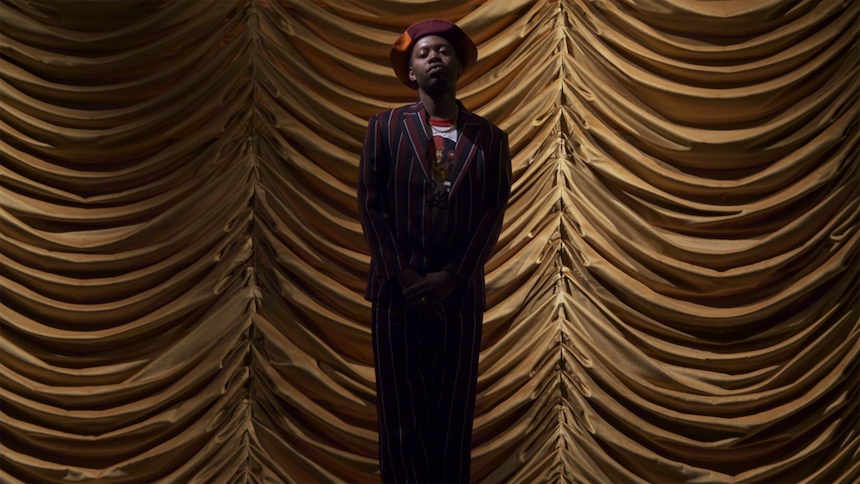Tribeca 2024 Review: SLAVE PLAY. NOT A MOVIE. A PLAY. Deconstruction As an Art Form
Jeremy O. Harris directs a documentary that pulls apart his provocative stage play and then puts it back together.

Why scream?
Slave Play. Not a Movie. A Play.
The film enjoys its world premiere at Tribeca Festival, ahead of its streaming bow June 20, exclusively on Max.
Kicking off with a non-professional video, capturing a highly-charged reaction by a white audience member after Slave Play concluded, and playwright Jeremy O. Harris' own calm responses from the stage, is a great set-up for anyone who has not seen the play, which was first mounted in 2017 at the Yale School of Drama, where Harris was a student, before it moved to New York, first off-Broadway in 2018, then debuting on Broadway in October 2019.
The play caused a sensation, garnering national press for its provocative themes and divisive reactions. Frankly, I was startled at the time to realize that playwright Jeremy O. Harris was the same Jeremy O. Harris who contributed to our little old site back in 2015/2016. (While I had a hand in editing some of the articles and exchanged a couple emails with him at the time, I've never met Harris in person, so I feel I can be completely objective in writing this review.)
Rather than simply filming a stage production of Slave Play, which would be the conventional, safe way to go, Harris films young actors who are cast in a workshop as they feel their way into the performances, finding their characters in the rehearsals, with the playwright giving direction and explaining why the text needs to be performed exactly -- or close enough -- to how it is written, which does not follow conventional wisdom.
The workshop rehearsals are filmed with multiple cameras and the screen is often filled with multiple images, as the actors deliver their lines, sometimes repeatedly, adjusting in response to Harris' direction. But the brilliant thing here is that at a certain point, the rather straightforward rehearsal process, which is inherently fascinating to watch, is broken up by new perspectives, in a manner that is completely unexpected.
Without giving anything away -- and how strange that is to write about a documentary! -- Harris then begins deconstructing the documentary itself, while simultaneously circling back to get into the play's origins at Yale and its reception through various workshops and stage productions, including interviews with past cast members.
Slave Play is heading to London's West End for a limited engagement later this month, with performances set to begin June 29. Meanwhile, Slave Play. Not a Movie. A Play. is heading to the Max streaming service. It's a strikingly assembled, pungent film that feels unlike nearly any other documentary that I've seen in recent memory.







